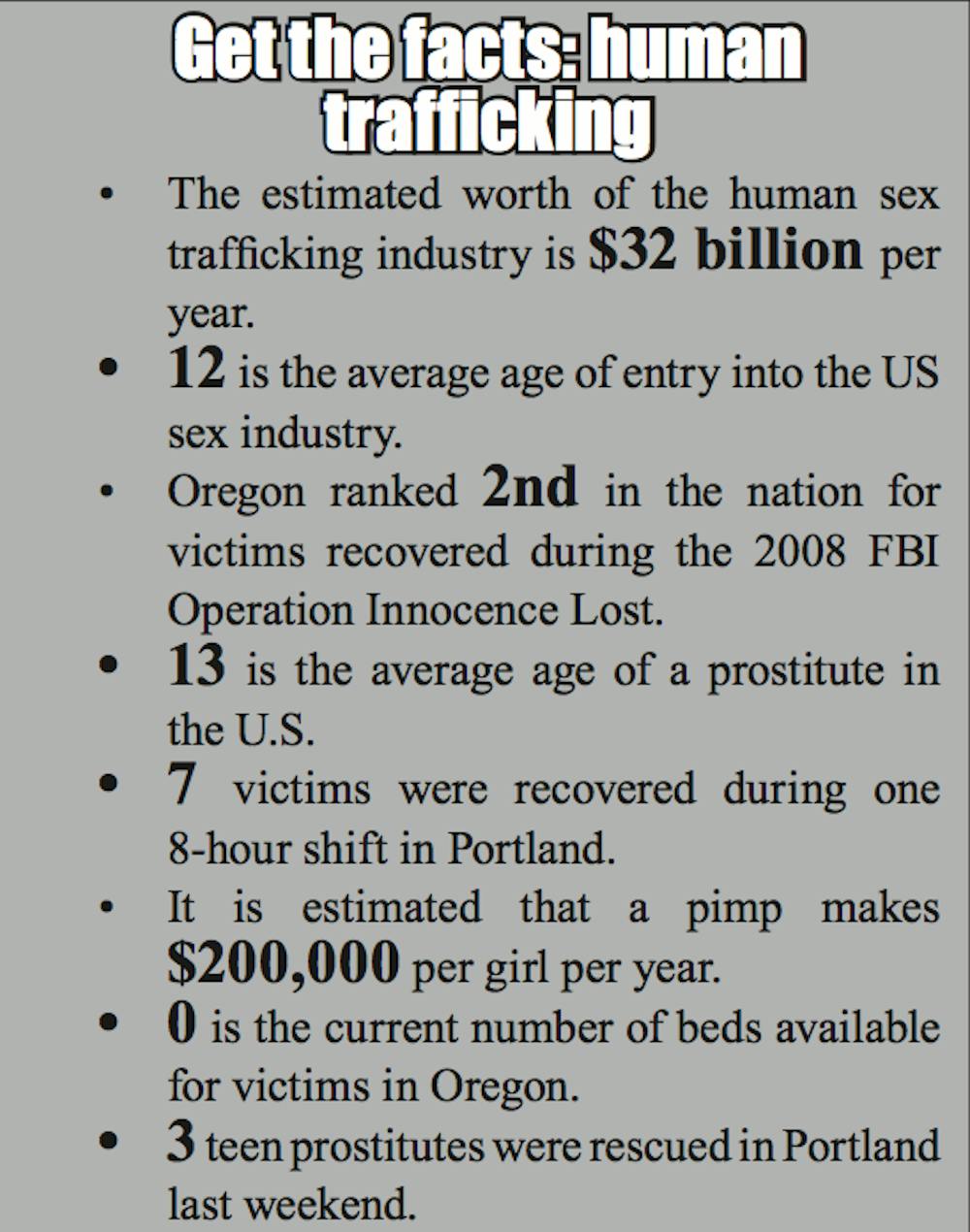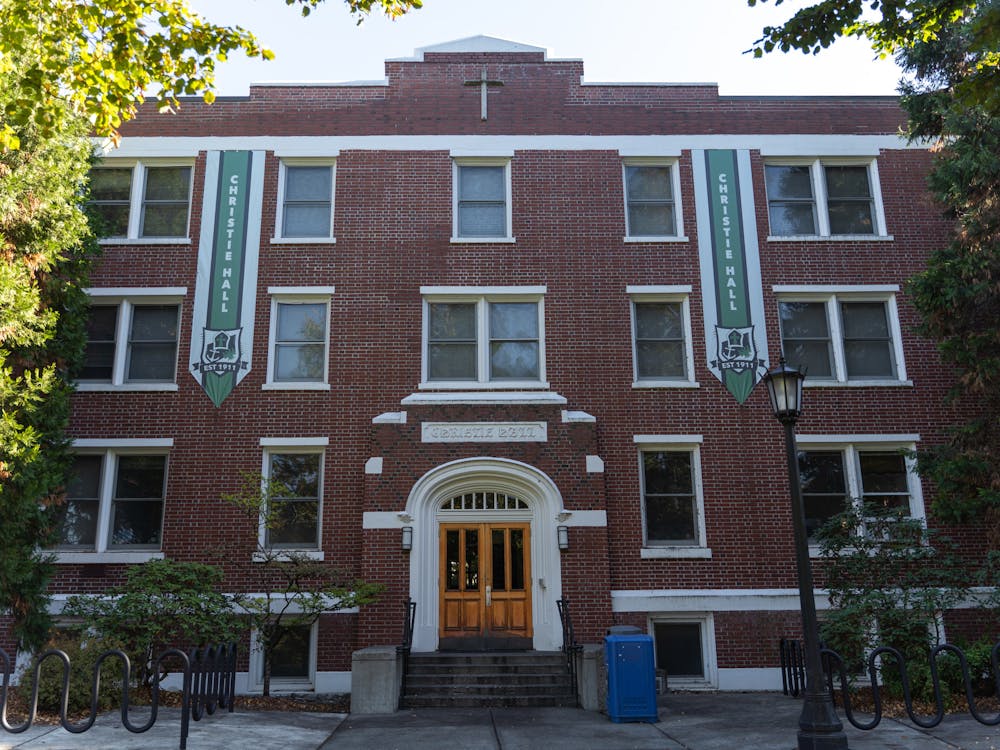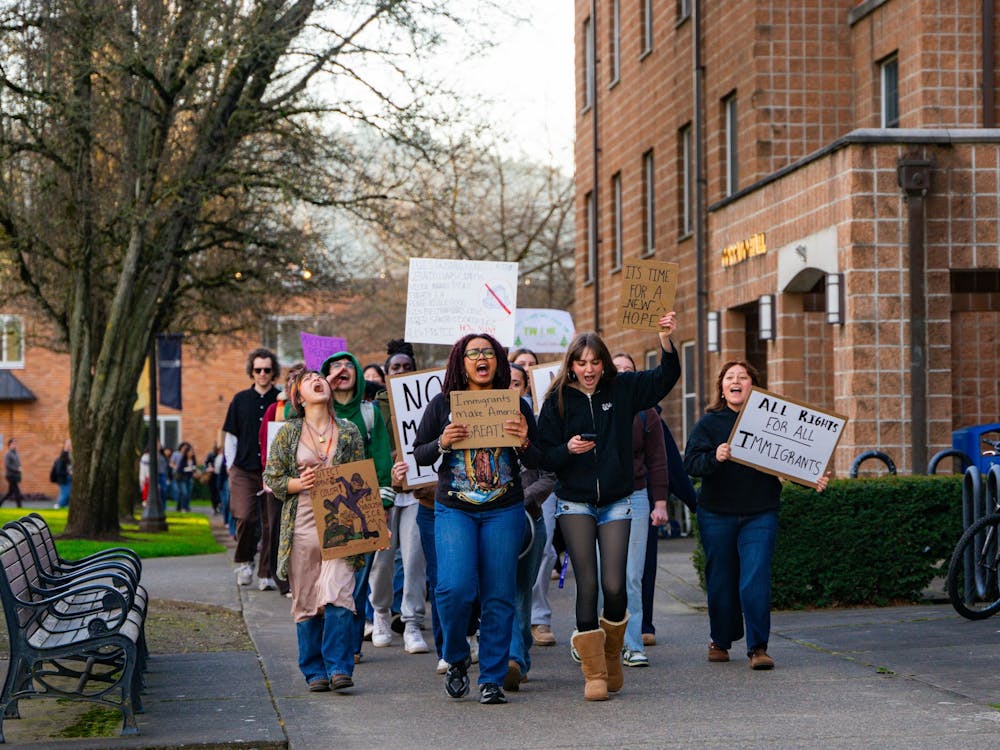Angel Largay shares the personal story of his wife and her past struggles with sex traffickng. This past weekend, Oregonians Against Trafficking Humans hosted an awareness conference on the UP campus with workshops to promote education and action. (Alisa White -- The Beacon)
By Elizabeth Vogel, Staff Writer -- vogel11@up.edu
Angel Largay met his wife, Michelle, while she was in prison. Michelle was a victim of human trafficking, which led her to prostitution and more serious crime. She is still in prison, so Largay spoke on her behalf Thursday night in Shiley 301.
"Hopefully it will be her here next year," he said.
Largay was one of many speakers at a human trafficking awareness event held at UP Thursday, Saturday and Sunday. Oregonians Against Trafficking Humans (OATH) sponsored the event. Senior Brianna Hodge, social science club president, helped with planning.
Thursday night "Very Young Girls" was shown. It is a documentary about Girls Educating & Mentoring Services (GEMS) in New York, one of the only resources in the country for victims of commercial sexual exploitation. According to the film, the average age of a prostitute in the United States is 13.
Largay's wife's story is similar to that of the girls in the film. When she was 12, she ran away from an abusive childhood to Portland, where was forced into prostitution. She attempted to leave prostitution, but there was nowhere for her to turn. Her only option was to go back to her pimp, who abused her for attempting to leave.
"He taught her to deep throat using a loaded pistol," Largay said, after apologizing for having to be graphic.
Largay's wife was finally able to leave prostitution when she went to prison at the age of 15 for killing an older woman. According to Largay, she was driven to this action by the desperation of her situation.
Largay met Michelle when he decided to find an inmate with whom he could correspond by mail. He saw her picture and began writing her letters. Now they are married and he helps raise awareness about human trafficking.
"My wife has been a victim," Largay said. "As a result, I know that tomorrow it could be my daughter or granddaughter. I may speak to and influence the person who stands between my daughter and the person trying to take her."
Sophomore Megan Brown was at Thursday night's event and was shocked by Largay's story.
"I'm appalled that that actually happens. It's disgusting," she said. "But I'm glad he's here and that he's speaking on behalf of a victim."
The main goal of the event this weekend was awareness. Hodge wanted people who came to the event to leave knowing more than they did before they came.
"The first thing is educate yourself. You can't do anything without that," she said.
Besides raising awareness, groups in Oregon are working to get more resources to victims of human trafficking through legislation and raising money. Gary Tibbett, a pastor from Gresham, also spoke on behalf of a victim. He preached a message of love.
"It's very easy to turn to anger," he said. "Anger will not solve the problem. What is needed is love."
As part of a nationwide cooperative effort between the FBI and the National Center for Missing and Exploited children, 23 teenage prostitutes were rescued in the Puget Sound area the same weekend OATH's awareness event was going on at UP. The Seattle area ranks as the top city in the U.S. for number of underage prostitutes recovered, and Portland is in second place.
Last weekend, three underage prostitutes were rescued in Portland, according to the FBI.
Before his own experience taking care of a young prostitute, Tibbett was unaware that this was a problem in the United States.
"I needed a perspective change," he said. "I thought human trafficking was something that happened ‘over there.'"
Largay believes that the next step in ending this problem is raising awareness.
"Human trafficking is such a heinous crime that I think awareness is all that is needed," he said. "Like stepping on the up escalator, once the masses of people are aware of the problem, action would follow as naturally as rising on the escalator."








